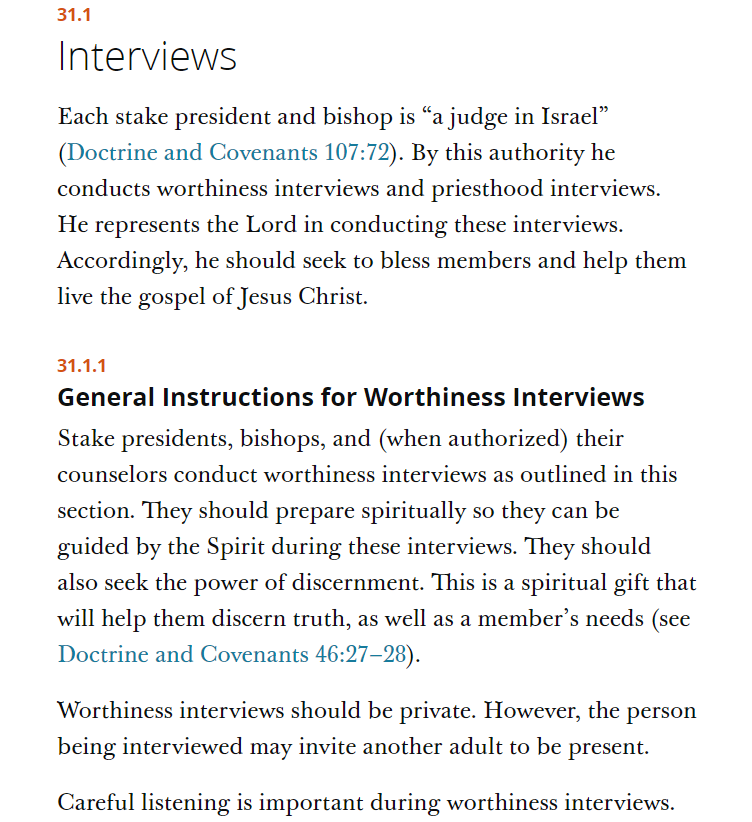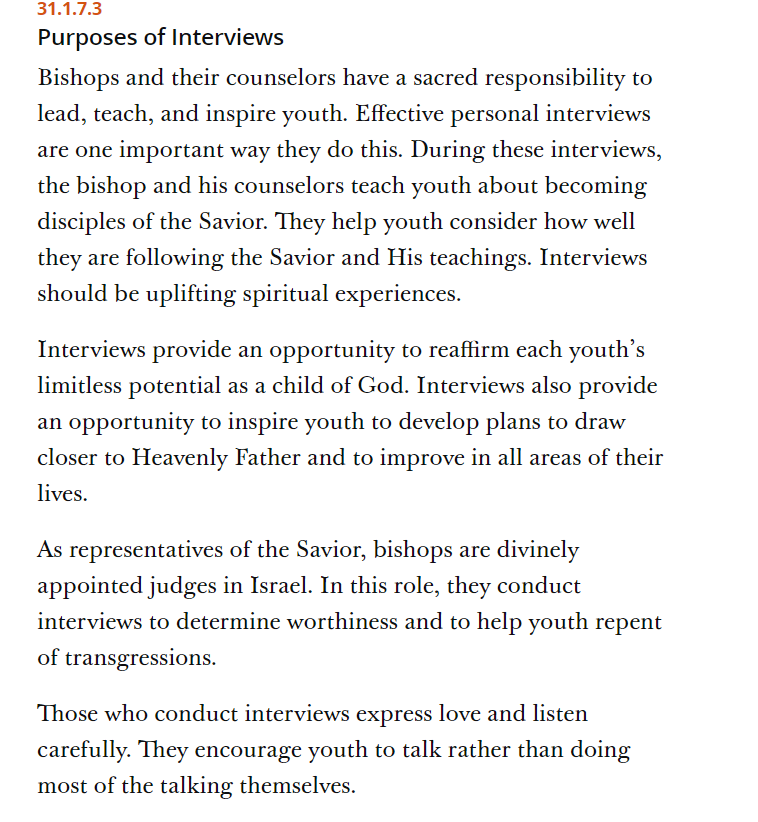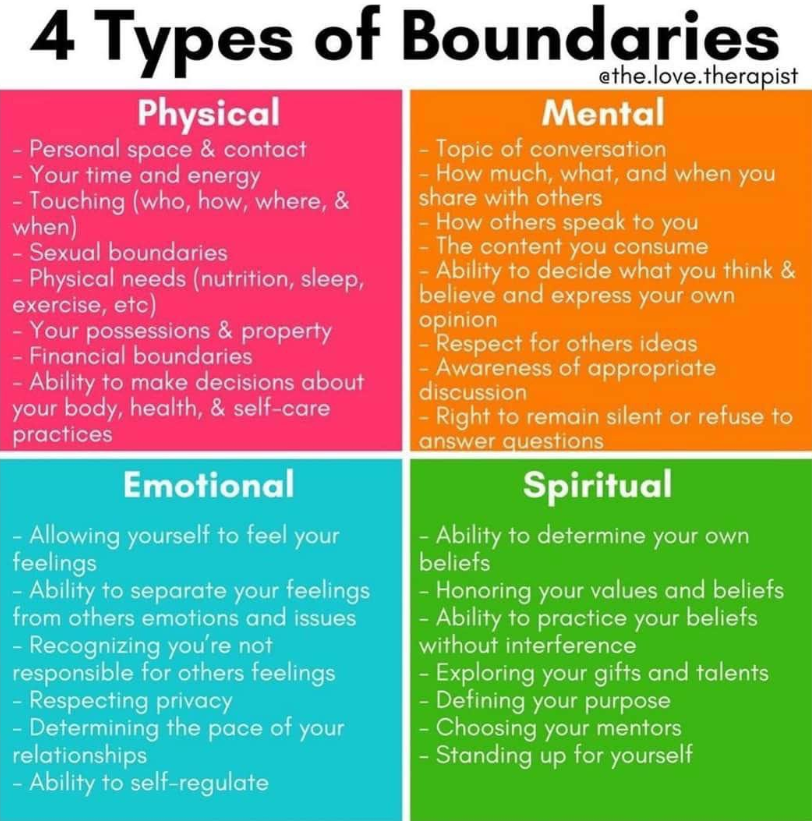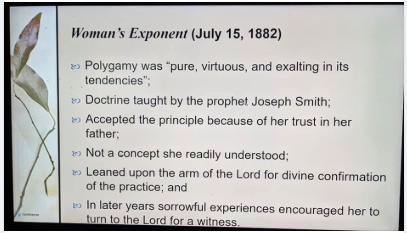ex·ploit: make full use of and derive benefit from (a resource); to make use of meanly or unfairly for one’s own advantage
I was 34 years old. Married, mother of four young children.
I sought help from my bishop when I was experiencing personal problems, just as I had done other times before, as a teenager, young adult, and married woman. In the past, my previous bishops’ had been kind, appropriate, loving, spiritual. I found comfort in their words and hope in their guidance. This time should not have been any different.
Except, it was.
I described, to my bishop, situations I was regularly experiencing within my relationship, which included daily verbal abuse, threats, physical intimidation, being left on the side of the road, not having money to buy groceries as a form of punishment, the discovery of a secret life I never knew my partner had–involving several extra-marital affairs, subscriptions to meet-up sex sites under fake names (some of which were men in our church), perusing Craigslist personal ads for random sex, and constant gas-lighting and emotional abuse. I was at a place in my marriage that I knew I needed to turn somewhere for help.

My bishop (who was some type of engineer/businessman in real life with no formal pastoral training) didn’t bat an eye at the situation I was describing. He simply could not believe that the clean cut, three-piece-suit-wearing man that partook of the sacrament each Sunday and taught youth Sunday School could do such horrific things without reason or provocation. Instead, his focus turned on me.
That is when this bishop started to ask the probing questions, at first coming dangerously close to crossing the line, then eventually stepping completely over it. He started to assess for the presence of trust within my marriage. Then he assessed for the presence of intimacy. Then he started to asked about my sexual history before my marriage, before I even knew my husband. He told me to describe the sexual interactions I had as a teenager and as a young adult. He wanted to know what sexual things I had done, at what age, and with whom. These questions had absolutely no bearing on the situation I was facing, nor was there any reason for this bishop to need or ask any of this information.
Can Exploitation Happen In Religious Communities?
Seeing how uncomfortable I was at his questioning, he told me his reason for asking such things: He had a special way with women and I owed it to him to answer his probing questions because of this gift. He couldn’t help me if I did not allow him to have all the information he needed. He proceeded to tell me that if I submitted myself to him, he could fix me for my husband; that he “had done this before.”
Paralyzed with indescribable confusion that this person, who I believed was called of God, who spoke for God, who represented God, was engaging in such obvious inappropriate actions, I just froze. I tried to push back, in the kind of way that women do when we sense danger but also know that our ability to “play nice” could be the ticket to our survival. I did not fight. I did not scream. I did not run, right away. I simply was too bewildered to do any of that. I just sat there trying to make what was happening fit into my understanding of the world. And it wouldn’t.
How Can Spiritually-Based Power Differentials Be Exploited?
After I declined his coercive invitation, his efforts turned toward putting me down as a person, as a woman, as a wife, and as a mother. He shamed me for having goals of getting a master’s degree, saying I needed to “focus on being a better wife and mother.” He told me that my husband “has to have something to live for” and I “should never refuse him intimacy.” He said that if he is not receiving enough sexually, than it isn’t his fault for stepping outside of our marital covenants. The bishop also told me that he barks at his own wife, which she does not like, but he finds it funny, so somehow that makes it ok. He used this as a way to explain why my feelings really did not matter compared to my husband’s. He said I was responsible for the anger and abuse, and that I needed to be more patient and loving. He said that my feminist tendencies were alienating me from other women and I was already getting a poor reputation as someone who does not tow the line.
Finally, he became so irritated at my unwillingness to agree to his indecent proposal, that his face became flushed and beet-red. It was clear that he did not like the fact that I would not acknowledge his perceived power. He got up and stepped towards me, towering over me, while raising his voice to an angry and intimidating level.
That is when I felt my flight take hold. I bolted. I literally ran out of his office, alarmed at how ignited his anger was that I would not give him what he wanted. My soul broke that night, along with everything I thought I knew about God.

It took me years to fully extract what had happened in this meeting with my bishop, even though right away, I knew something was very wrong. I could not understand how this bishop could behave so inappropriately, if he was a man called of God to serve the members, which I very much believed at this time. In essence, I struggled greatly to decide what was ultimately more important–my spiritual beliefs that were precious and dear to my heart or my own self-worth and dignity that would be preserved by honoring the truth of what happened in the bishops office that night. There was no right answer in my mind, as denying what happened felt like a betrayal to myself, while sharing it felt like a betrayal to my religion.
When Spiritual Systems Are Purported To Be Safe, But Aren’t
Even now, I am haunted by how I froze, taking blame upon myself that I did not just give him the biggest middle finger, call him a pervert, leave his office right then and there, and drive straight to the authorities. But is spiritually-based sexual harassment even a reportable crime? Even internally, there is no HR department for members, no member Bill of Rights, no policy or instruction of what to do if the leader “called of God” is engaged in evil. Words do not accurately describe what it felt like to have the implicit and freely-given trust I had in this bishop be exploited in such a way that it destroyed my personal worth. When I sought safety, comfort, peace, and spiritual guidance, I received blame, shame, devastation, manipulation, and turmoil.
It destroyed everything I thought I knew about life, love, and God. And for what purpose? In order for this bishop who called himself a “judge in Israel” to exercise his own personal intentions upon me, to which I continue to thank my Heavenly Mother to this day that I never came to know what exactly those personal intentions were.
This is spiritual exploitation. It is a profoundly devastating spiritual violation.
It’s important to point out that I was an adult in this situation. I went to meet with my bishop of my own free will and choice. I was not child being told that this was an expectation in order to determine my personal worthiness. I knew (or thought I knew) what I was doing and why I was doing it. Although, growing up in the church, it is taught that this is a safe system, that bishops are righteous, that members do not question what they do. My situation as an adult is nothing compared to how this type of practice may impact a young child, a teenager, or even a young adult. I am also a white woman. I admittedly know and fully acknowledge that I am speaking from that position of privilege and that should the color of my skin have been different, the situation likely would be too.
Is Failing To Protect When Trust Is Given Exploitative?
In recent years, this dynamic of women failing to be protected from abusive situations when reported to their bishop or church leaders has secured a large spotlight, highlighting the spiritual and religious components that make the situations more complex. BuzzFeed interviewed dozens of women, many speaking anonymously out of fear of retaliation:
“BuzzFeed News spoke with more than 20 current and former female members of the LDS church from seven states for this story, all of whom said that they had experienced domestic abuse and then gone to their clergy for help. In most cases, those leaders were bishops, roughly the LDS equivalent of pastors who serve on a volunteer basis. Bishops are drawn from the church’s lay priesthood, are all men, and serve for several years while maintaining jobs, families, and any other personal commitments.
In response to their requests for guidance, the women said, they were told by their bishops to stay in abusive relationships, that their eternal salvation could be jeopardized by leaving violent partners, and that they were to blame for their marital problems. Though some reported positive experiences with church leaders, every woman who spoke with BuzzFeed News for this story said there are widespread inadequacies in the way local Mormon leaders handle reports of abuse and domestic violence.”
https://www.buzzfeednews.com/article/jimdalrympleii/in-the-wake-of-rob-porter-allegations-mormon-women-say
Are There Consequences For Reporting Spiritual Abuse?
Consequences for speaking out against this type of dynamic can also be prevalent within Mormon culture. Members report relational aggression, tribal shunning, communal shame, and alienation from their Mormon community if they are perceived as being culpable in their own exploitation, raising alarm about the unrighteous dominion of a church leader and even working for positive change within the culture itself (UnrighteousDominion.org). This type of exploitation of vulnerable women and failure of clergy, such as bishops, to believe and protect abuse victims has a long history of within the church. Lavina Fielding Anderson, one of the original trustees of the Mormon Alliance, founded in 1992 to document allegations of spiritual and ecclesiastical abuse in The Church of Jesus Christ of Latter-day Saints (wikipedia), wrote in Dialog,
“…We must protest injustice, unrighteousness, and wrong. I pay my church the compliment of thinking that it espouses the ideals of justice and fairness. I am confused when leaders confiscate temple recommends of members who publicly praise the church’s actions. Blacklists, secret files, and intimidation violate my American sense of fair play and my legal expectation of due process. They violate the ideal that truth is best served by an open interchange, that disagreement can be both courteous and clarifying, and that differences are not automatically dangerous. Most importantly I am dismayed when the organization that teaches me to honor the truth and to act with integrity seems to violate those very principles in its behavior. I am bewildered and grieved when my church talks honorably from one script and acts ignobly from another.“
https://www.dialoguejournal.com/wp-content/uploads/sbi/articles/Dialogue_V26N01_23.pdf
Women have experienced this type of spiritual exploitation within the church dating back to the practice of polygamy. Young girls were told that the practice of polygamy was a commandment, even though they likely did not understand the implications of the magnitude of this lifestyle. It is also important to note the type of trafficking involved in taking multiple wives. In a recent FairMormon conference, this information was shared regarding the culture history of polygamy within the church:
Exploitation In A Religious System Is A Form Of Spiritual Abuse
Within Mormonism, there is a widely held belief that our leaders can and do offer sound spiritual guidance to members who find themselves in need of such. And many times, it is sound spiritual guidance that is helpful and good. It makes sense that this practice in and of itself is not considered to be exploitative in nature by the general membership. But, the line can become very blurred between offering sound spiritual advice and doing irreparable harm and damage to the very core being of a person’s soul. This is the definition of spiritual abuse. Spiritual abuse can often be cleverly disguised as religion, as worthiness, as faith. Safe Havens Spiritual and Religious Abuse Wheel, shown below, identifies several components and examples of spiritual abuse, namely, asserting authority, requesting submission, encouraging acceptance of abuse and suffering, rigidity in scriptural gender roles, among many others.

The Mormon Alliance has outlined definitions of ecclesiastical and spiritual abuse and clarified important differences between them:
“Although the terms “ecclesiastical abuse” and “spiritual abuse” are used somewhat interchangeably, they have different emphases. Ecclesiastical abuse occurs when a Church officer, acting in his official capacity and using the weight of his (less frequently her) office, coerces compliance, imposes his personal opinions as Church doctrine or policy, or resorts to such power plays as threats, intimidation, and punishment to insure that his views prevail in a conflict of opinions. The suggestion is always that the member has weak faith, an inadequate testimony, and lacks commitment to the Church. Spiritual abuse occurs when a member, through the actions of another, is made to feel limited or lacking in free agency, diminished in value in the eyes of God, unworthy to pray, unworthy or incapable of receiving answers to prayer, outside the influence of Christ’s atonement, and excluded from the Savior’s love and grace. The Church, particularly on the ward level, works amazingly well most of the time as communities of compassion and belonging; but in the remaining fraction, where an ecclesiastical officer succumbs to an appetite for unrighteous dominion, the Church offers no structural safeguards against abuse and very seldom even any recognition that the member’s rights can be violated. In this way, the Church’s hierarchical structure, as manifested in the “priesthood pipeline,” is systemically vulnerable to the temptation to inflict abuse.”
http://mormon-alliance.org/definitions.htm

When spiritual abuse takes place under the guise of religious necessity, it also becomes a form of covert abuse, which can be difficult to detect and identify, even when it is directly happening to the victim. Psych Central explains,
“Covert abuse includes any type of underhanded and deceitful behavior on the part of the abuser used to manipulate others in order to gain power and control..Interactions can include one or all of the following: criticism, boundary violation, sensuality, gaslighting, confabulation, or cognitive dissonance. The abuser tends to be perceived by others as a “good guy,” friendly, or even above reproach. It is subtle, which makes it easy to ignore, deny, and minimize..”
https://pro.psychcentral.com/recovery-expert/2016/10/coping-with-covert-abuse/
What Is Spiritual Trafficking?
Covert abuse is often hidden in plain sight, as can be the case when a member goes to their bishop for what they think will be a standard meeting or interview, but they actually experience spiritually abusive practices within the meeting. It is important to note that not all abuse is intentional and even well-meaning bishops who do not understand the power dynamic they hold can be spiritually abusive when asking these type of probing questions, even when truly thinking they are assessing for worthiness. Despite intention, abusive actions still have the same negative and devastating impacts.
Meetings and interviews with the spiritual leaders within Mormonism is practice that is normalized, even to the point that it can be considered a necessity for the assessment of worthiness. Worthiness interviews occur regularly within a member’s life, even as a child and youth in the church. Most bishop interviews have some component of assessment of worthiness within them. In order to progress within the church, such worthiness interviews are required to take place. This is true for key ordinances and/or rites of passage, such as baptism, confirmation, progressing from children’s Primary into the Young Women or Young Men programs, receiving the Priesthood (for males only), attending the temple, and receiving the temple endowments. Because the requirement of worthiness interviews is tied closely to the ordinances required for eternal spiritual progression, it creates a spiritually exploitative dynamic for members. Members cannot simply refuse the interviews if they want to participate fully in the church’s programs and desire to progress eternally in the afterlife. It also involves a form of spiritual trafficking, where members must constantly give themselves to the authority of the bishop, without him first earning it. The trafficking of pain, confession, sin, forgiveness, and even personal problems exists within the structure of the church, where leaders rotate in their voluntarily roles but members are consistently required to meet with whoever the leader is in order for the interviews to take place.
Here are passages from the General Handbook: Serving in The Church of Jesus Christ of Latter-day Saints, that describe the practice of bishop interviews and worthiness interviews:

Worthiness and other interviews with the bishop are purported to members as not only safe–because the bishop is considered to speak for God–but also required for the faithful members to gain the blessings of their faith. This practice would seem to be somewhat coercive in nature, even if only spiritually. But extricating this practice from the belief has not happened within the culture, nor within the policies. Moreover, the impact of these worthiness interviews and other meetings with the bishop that have the possibility of turning inappropriate at any point, can be especially damaging to youth and children, who are still developing their personal identity, their sexual identity, and their spiritual identity.

Can A Bishop Assessing For Worthiness Of A Child Be Exploitative?
These problems with worthiness interviews are further compounded when considering the lack of an established, formal alert system for a member, child, youth, or adult, to report if/when a bishop veers inappropriately off course during the interview, to the point of an exploitative assessment with explicit sexual questioning. Having no mechanism of safely and ethically reporting rogue leaders within the church, is particularly troubling, considering that Mormon leaders, such as bishops, are lay volunteers and receive no formal pastoral, therapeutic, or ethical training before they are called to serve to lead a congregation. Many adults have reported similar experiences as youth within the church while attending bishop’s interviews. Many describe interviews involving probing questioning, inappropriate sexual terms or phrases being used by the bishop, learning about masturbation and other sexual acts in these interviews, and being asked detailed accounts of personal sexual thoughts, actions, and experiences as children, teenagers, or young adults. The effects of these interviews have been described as feelings of unresolved guilt and shame, irrational fears, extreme confusion, feelings of self-loathing, self-injurous behaviors, and suicidal thoughts or ideation (https://protecteverychild.com/read-the-stories/).
The 8 Components To Spiritual Abuse
Furthermore, the Mormon Alliance identified eight components that characterize the most abusive encounters that have been collected within their work:
- A difference of opinion is not simply a difference of opinion but is treated as a revelation of moral inadequacy on the part of the member. If the difference of opinion stems from scholarship on the member’s part or the application of professional tools to an aspect of Mormon studies, the officer seldom has the technical expertise to discuss the point at issue. Frequently he shifts the grounds of the discussion to the dangers of promulgating any perspective but the traditional one and insists that there is something bad or wrong about holding alternative views.
- A request for help on the part of a member is seen as an invitation to judge the member’s worthiness on the part of the officer.
- No matter what the content of the initial issue, any issue can escalate with terrifying quickness into a power struggle in which the ecclesiastical officer demands compliance because of his office and accuses the member of not sustaining his or her leaders and/or of apostasy. These charges, in turn, lead to threats to confiscate temple recommends, to release the member from callings, and to conduct disciplinary councils, the results of which may result in no action, informal probation, formal probation, disfellowshipment, or excommunication.
- If the member protests such actions and refuses to yield to the officer’s power, then the very act of protest or the expressed desire to continue the discussion is seen as evidence of the charges. The officer feels justified in refusing to explain the reasons for taking the action and unilaterally terminates the discussion by citing his authority. The member, rather than having a problem, has become the problem.
- If another ecclesiastical leader, such as a stake president or an area president becomes aware of and involved in the situation, the original leader almost always controls the flow of information to this second leader. The opportunities to present biased information, reframe the issue as one of disobedience, and portray the member as a trouble-maker are legion. The first leader seldom suggests a group discussion or meeting that involves a mediator or a referee; rather, he is usually able to use the weight of the second officer’s office and power to reinforce his own in his effort to force the member’s capitulation.
- The member feels unjustly treated. Feelings of helplessness, betrayal, anger, and depression frequently follow. Expressions of “increased love” seldom if ever follow “rebukes” from abusive ecclesiastical officers, only additional warnings about conformity that increase the sense of unfairness and powerlessness.
- If the member in pain withdraws from church activity to protect himself, herself, and/or the family from this assault upon their spiritual well-being, the withdrawal is seen as evidence of the member’s lack of worthiness, not as a cry for help or as a symptom of abuse in the system.
- If the member alienated from the Church by abuse seeks a new spiritual home in another church or religious movement, explores alternative forms of spirituality, suffers personal, familial, or professional disruption—or even, feeling a new sense of freedom, departs from what is considered traditional respectability in Mormonism—these facts, frequently distorted by rumor and gossip, are frequently used as ex post facto evidence that the member “was disobedient all along” and that “the Brethren knew what they were doing.” In short, situations and problems subsequent to the abuse, perhaps caused by it, and almost always intensified by it, are interpreted as justification of the abuse. (http://mormon-alliance.org/definitions.htm
The church has many positive programs, uplifting teachings, good and praiseworthy aspects, despite a dark and unseen underbelly of shame-induction, spiritual exploitation, and unhealthy purity teachings within the culture, aspects that are widely experienced but not widely discussed. This paradigm leads to dissonance between the visible good and the taboo bad. The church states positive components to the practice of interviews in that,
“Effective personal interviews are one important way they do this. These interviews provide opportunities to help youth become disciples of the Savior, repent of transgressions, and live the gospel of Jesus Christ.”
https://www.churchofjesuschrist.org/church/news/first-presidency-releases-new-guidelines-for-interviewing-youth?lang=eng
How Are Uninformed Policies Spiritually Neglectful?
Could these same identified opportunities be accomplished without one-on-one worthiness interviews with untrained clergy? What is the real gain of worthiness interviews? Why have leaders engage in assessments of personal worthiness in the first place? Does it serve a purpose within the structure of the church? Is there a belief within Mormon’s foundation that makes these assessments necessary? When considering the negative impacts that one experiences from covert abuse, it is important to ask the question if worthiness must be assessed by an untrained lay clergy. Psych Central advises on the motives and effects of undetected abuse:
“Realize that common feelings of covert abuse include guilt, fear, confusion, and shame. These feelings are indications that you are being invalidated by the other person. Invalidation is a great factor in enabling you to be manipulated and controlled.“
https://pro.psychcentral.com/recovery-expert/2016/10/coping-with-covert-abuse/
Morevoer, worthiness defined is the quality of being good enough, being suitable, deserving of praise and attention. Having a religious practice that outsources the assessment of human worth to an untrained lay clergy, is spiritually reckless and exploitative in nature, let alone spiritually neglectful due to the irresponsibility of it. Still, the church continues to envelope this practice within its normal operations without establishing safety measures for when it goes wrong. Why does worthiness of any member need to be assessed by an untrained bishop, if the core tenant of Mormonism is the belief in loving Heavenly Parents? Why isn’t each member’s personal worth and worthiness left to the individual to assess for themselves within their own relationship with God(s)? Isn’t this *also* a core tenant of our faith?
“There are no prerequisites for worthiness.”
-Brene Brown
Can Purity Teachings Be Exploitative?
In her blog, Outside the Book of Mormon Belt, Lisa Torcasso Downing, unpacks the issues of worthiness and forgiveness coupled with male/female dynamic and power differentials within the Mormon culture and spiritual setting of the church. She states:
“No priestly authority is needed to extend compassion or extol God’s love, nor is it capable of offering forgiveness. Forgiveness is the Lord’s job and his alone. It strikes me that many male leaders of the Church don’t understand how intimidating it is for women to discuss their sexual issues with them—men who sit in judgment of them, men who they see socially and who may be friends with their husbands, men who these women are taught can’t control their libidos when a navel or shoulder is revealed. To them, women must confess “illegitimate” orgasm.“
https://outsidethebookofmormonbelt.com/2020/08/06/the-indecency-of-female-confession-to-male-church-authority/#more-3977
Additionally, it can be considered an exploitative practice to teach the notion that women and girls are responsible for the thoughts and actions of men and boys. This is harmful, as a teaching, but also places an inordinate amount of impossible responsibility on women and young girls, but also a freeing of personal responsibility for men and young boys. Speaking of this purity culture, Downing goes on to describe:
“LDS women have been made keepers of male sexual purity, and yet, the men we are to protect tell us our Heavenly Father wants us to confess to them anything deemed sexual misconduct. Not only that, the bishop to whom we must confess can demand we return as many times as he wills, can keep looking us in the eye and prodding us to speak of our sexual arousal. We must comply, we think, until he pronounces us once again worthy. It defies decency, this practice of one-on-one, closed door, female confession to a male positioned as her spiritual authority. Myriad LDS women could tell stories of the intimidation, humiliation, and, yes, exploitation they experienced during confession, stories we rarely hear and, when told, we often don’t believe because we’re conditioned to protect ecclesiastical authority.“
https://outsidethebookofmormonbelt.com/2020/08/06/the-indecency-of-female-confession-to-male-church-authority/#more-3977
What Does Grooming Look Like In A Church Setting?
In addition, the practice of worthiness interviews can be type of grooming behavior, even if it in not intended to be such. Normalizing sexual questioning of children, teens, young adults, and even other adults by an untrained, adult male simply because of the belief that he is called of God is essentially spiritual grooming. It places the expectation for members to engage in an inappropriate, uncomfortable interview over their need for personal safety and healthy boundaries in the name of religious requirement. Grooming practices often involve desensitization, situations that illicit discomfort of the child, who is often fully trusting of church leader and often, the first violations are boundary issues but not physical violations.
“Grooming is a tactic of overcoming the survivor’s defenses by slowly desensitizing his or her natural reaction to abusive behaviors. The most commonly recognized context is when pedophiles use it on children and their parents, but the technique is also used in other contexts, such as confidence scams or commercial sex work. Grooming works by mixing positive behaviors with elements of abuse. At the beginning, all behaviors are positive. Slowly, abusive elements are added in amounts that surprise the survivor to an extent, but do not push alarm to a high level. Overtime, the inappropriate comes to feel normal. Because the primary aggressor’s real goal isn’t understood by the survivor, he or she often misses the harmful implication and dismisses the internal signals of alarm that do arise.“
https://www.abuseandrelationships.org/Content/Behaviors/grooming.html
Establishing Appropriate Boundaries Can Mitigate Exploitation
Within the current climate of an increased awareness of health, wellness, mental health, and mental wellness, the church may find itself in need of incorporating the same wellness principles in which its members are becoming more awakened to. Schools are starting to incorporate wellness teachings, healthy boundaries, and mental health into curriculum, with many churches, community organizations doing the same. As awareness increases, members may see the problematic practices of worthiness interviews, explicit questioning, untrained lay leaders conducting private interviews with members who have implicit trust in them, and the lack of an established system of report ethical and legal offenses.







Thank you for this article. I’ve recognized abuse in my past (mostly unintentional on the part of the ecclesiastical leader) but I’ve been afraid to put it into words, even as I walk away from the church. I am grateful to understand better why I was so depressed, anxious, and resentful. I have not moved past it, but I’m going the right direction. I’m a white, straight male, I really feel for those that don’t fit the mold. I fit the mold and it’s been hard enough.
Situations you described are very similar to what has happened to me, which has left me in a Crisis of Faith. I’m glad you are speaking up about it. I know I’m not the only one. Tolerating abuse, advocating for people to stay with abusers, and exploiting people under your charge are all unacceptable. Having lay leaders that are lacking knowledge of how to deal appropriately with situations of abuse is a huge weakness in the LDS church. It’s easy to exploit the faith of the faithful, and predators are acutely aware of that. It’s the perfect playground for narcissists and sociopaths to bask in thier grandiosity and find a steady narcissistic supply from all of the faithful, humble, yielding givers in the church. Now I many times feel unsafe at church, knowing that people like my ex-husband are creeping around, enabled by inadequate clergy, emboldened by the myriad of ways the can use faith to manipulate, looking for thier next exploit as they lie to get temple recommends. Church doesn’t feel like a safe place for me anymore. My testimony is shattered.